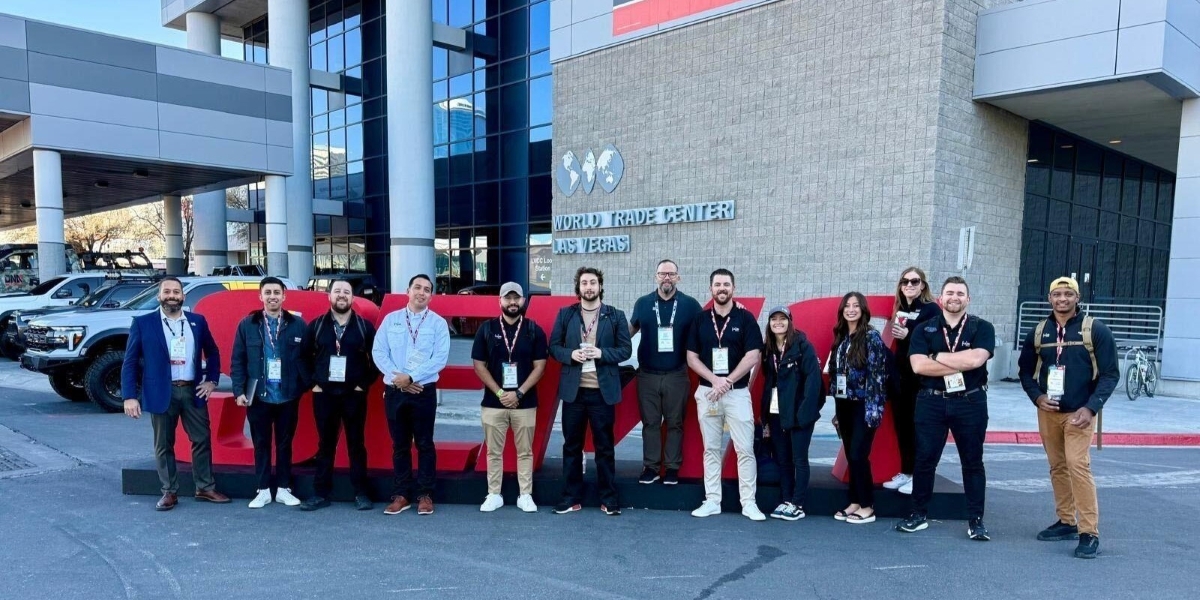When people think of private equity, they rarely consider procurement reform. But Jeremy Tomes is shifting that perspective, one acquisition at a time. By blending financial discipline with industry empathy, Tomes has positioned himself as a leader in a growing movement: private equity that doesn’t merely extract value but also contributes to structural improvements in how essential goods and services are sourced, priced, and delivered. Through his flagship venture, Prime Contractor Supply, and his broader portfolio, Tomes is demonstrating that procurement reform can be both a moral necessity and a source of competitive advantage.
The Procurement Crisis in Construction and Infrastructure
For years, procurement in the construction and infrastructure industries has faced challenges such as:
- Vendor fragmentation
- Inconsistent pricing
- Manual quoting delays
- Lack of transparency in sourcing
- Supplier exclusion due to outdated systems
Jeremy Tomes identified these systemic issues early on, and he realized that the solution did not necessarily lie in top-down reform. Instead, he saw an opportunity in acquiring the companies that provide the supplies and modernizing them from within. His model targets the middle of the value chain: the vendors, distributors, and suppliers responsible for moving millions of dollars in materials each day but who often lack the infrastructure needed to meet contemporary expectations.
Transforming Vendors into Platforms
Tomes does not treat his acquisitions as isolated companies. Rather, he views them as integral parts of a broader procurement ecosystem. Once acquired, each business undergoes significant transformation:
- Digital quote automation
- Real-time delivery scheduling
- Cloud-based inventory access
- Compliance flagging for government contracts
- Transparent cost breakdowns at the line-item level
These upgrades help buyers—especially municipalities and large contractors—make more informed decisions, obtain predictable deliveries, and maintain effective vendor relationships. The outcome? Fewer cost overruns, reduced corruption risk, faster bid approvals, and improved service.
Empowering Buyers, Not Just Owners
One of the important yet often overlooked aspects of procurement reform is the buyer experience. In the traditional model, buyers at construction firms or public agencies often had to:
- Call three vendors to get a quote
- Fax or email requests
- Wait days for pricing
- Re-quote projects when items were unavailable
Jeremy Tomes addressed these inefficiencies. His companies now offer:
- Portal-based quote requests
- Mobile access to availability
- GPS-confirmed delivery windows
- Centralized contact for multi-regional orders
These systems are particularly beneficial in government settings, where public accountability, documentation, and process transparency are critical. Switching to a Tomes-owned supplier doesn’t just represent a cost-saving measure; it often means an improvement in governance.
Driving Supplier Diversity from the Inside
Procurement reform is not only about speed and software—it’s also about access.
Jeremy Tomes’ commitment to Minority Business Enterprise (MBE) certification ensures that his firms are not only eligible for government and corporate supplier diversity programs but also promote those values within the organization. This approach creates a triple benefit:
- Government buyers meet diversity goals
- Contractors receive credit toward DBE/MBE bid requirements
- Employees from underrepresented backgrounds see clear pathways to leadership and ownership
Rather than treating diversity as a checkbox, Tomes integrates it into the procurement strategy by building teams, systems, and incentives that reward inclusion at every level.
Sustainability, Compliance, and Reporting
Modern procurement must meet environmental and regulatory expectations. Tomes’ businesses have integrated tools for:
- Emissions reporting on logistics
- Source tracking for raw materials
- Certifications for green building standards (e.g., LEED, EnergyStar)
- Vendor audit trails for compliance officers
This level of transparency enables buyers, particularly public entities and firms focused on environmental, social, and governance (ESG) factors, to meet their standards while partnering with suppliers that align with their values.
Better Procurement = Better Cash Flow
One of the more surprising outcomes of Jeremy Tomes’ procurement-focused model is the improvement in financial performance. By refining systems and centralizing supply management, his companies experience:
- Lower order error rates
- Decreased returns
- Improved inventory turns
- Increased vendor discounts
- Faster payment cycles
This leads to stronger EBITDA for acquired companies and more reliable vendor performance for clients. This feedback loop creates operational excellence and helps maintain defensible market share.
A Quiet Revolution in an Overlooked Industry
While much of the private equity world focuses on tech and trends, Jeremy Tomes is working to modernize an often overlooked but essential industry: the companies that deliver products to builders, planners, and community operators. His work demonstrates that procurement is not just a function—it’s a strategy.
When managed properly, procurement can lead to:
- Better pricing
- Increased access for underrepresented groups
- Stronger compliance
- Shorter timelines
- Better returns
This is not disruption. This is execution at scale.
Summary
Jeremy Tomes is a private equity leader with a procurement-first mindset. He understands that the true power in construction and infrastructure doesn’t lie in the projects themselves, but in the supply chain that enables them. By acquiring vendors, modernizing systems, and centralizing excellence, Tomes is turning procurement into both a value lever and a force for fairness.
To learn more about Jeremy Tomes and his procurement-focused private equity model, visit https://biglawcapitalist.com/jeremy-tomes/
Disclaimer: The views and opinions expressed in this article are based on the information available at the time of publication. While every effort is made to ensure the accuracy of the content, individual experiences and results may vary depending on various factors such as market conditions, operational strategies, and business practices. This article is intended for informational purposes only and does not constitute professional advice. Always conduct independent research and consult with relevant experts or professionals before making business decisions.









